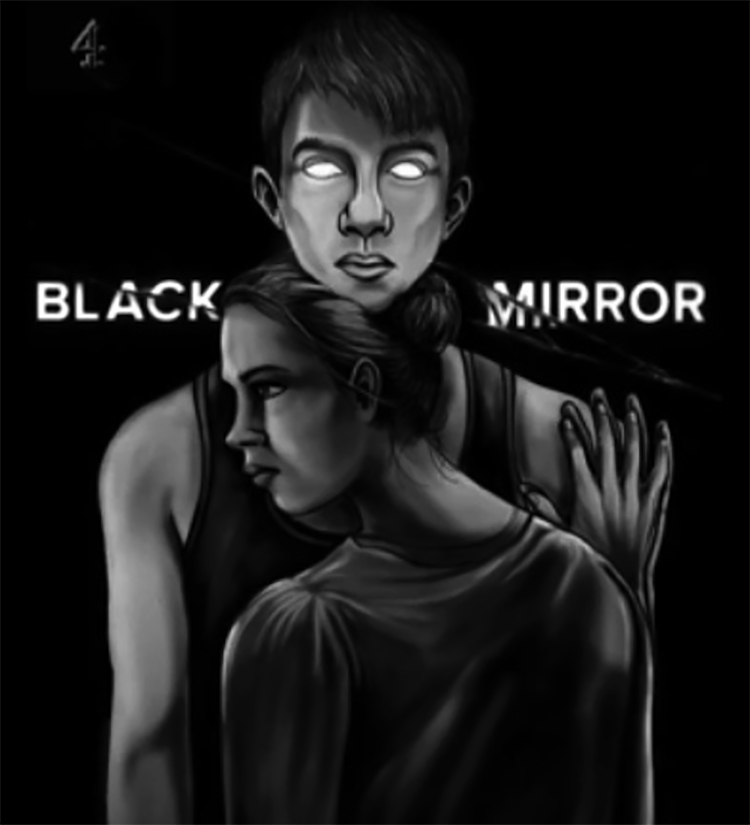Le Laboratoire Langages, Littératures, Sociétés, Études Transfrontalières et Internationales (LLSETI) de l’Université Savoie Mont Blanc organise un séminaire « Texte, image et arts numériques » sur le thème « À la recherche du corps glorieux : mondes transhumanistes et enjeux posthumanistes dans Black Mirror ». Il se déroulera en présence de Sara Touiza-Ambroggiani, docteure en philosophie, affiliée au Laboratoire d’études et de recherches sur les logiques contemporaines de la philosophie (LLCP) du l’Université Paris 8.
Le séminaire se tiendra le vendredi 6 mars 2020 de 14h à 16h dans l’amphi 11 000 du bâtiment 10 sur le campus de Jacob-Bellecombette.
À propos du séminaire
Black Mirror, la série d’anthologie imaginée par Charlie Brooker, explore, au gré des épisodes, l’ambiguïté qui caractérise nos rapports aux fulgurantes avancées technologiques contemporaines. À la fois fasciné et effrayé par les artéfacts dont il se sert chaque jour, le spectateur de Black Mirror se retrouve devant ses propres contradictions. La première étant d’assister, devant un écran, à la mise en scène de son addiction aux écrans. Beaucoup de scènes dans les différents épisodes jouent de cette mise en abyme. Le dernier opus, Bandersnatch, poussant à son paroxysme l’effet miroir en faisant de la plateforme de streaming Netflix un des personnages du film interactif.
Les mondes dépeints dans les différents épisodes donnent le sentiment d’une inquiétante familiarité et les boucles réflexives qui s’y déroulent laissent entrevoir l’inéluctabilité de l’hybridation technologique de l’être humain en même temps que sa déchéance morale. La place du corps est centrale dans cette chute. Le corps est à la fois « le tombeau de l’âme » au sens platonicien et le vecteur d’une rédemption espérée. Les corps connectés que nous pouvons croiser dans l’univers Black Mirror cherchent tous l’augmentation des capacités humaines (augmentation des perceptions, de la mémoire, des sentiments) via les artéfacts technologiques. Il y a là la mise en scène, sans détour, de l’idéal transhumaniste.
Cependant, et c’est là l’intérêt philosophique de cette série, l’augmentation bute en permanence sur des problématiques liées à l’identité personnelle, au sentiment d’être soi. Comme si ce sentiment ne pouvait se contenter d’une conscience étendue et puisait sa sève dans les entrailles d’un corps humain, simplement corruptible. Les mondes exposés par la série sont clairement transhumanistes mais les enjeux problématiques révélés sont bien posthumanistes en ce sens que les personnages expérimentent – dans leur chair – la possibilité même d’une pensée renouvelée de la subjectivité, non plus considérée comme « intériorité », mais comme espace de négociation permanente entre différents êtres, espace distribué sur plusieurs pôles (naturel/artificiel, organique/mécanique). Même quand les consciences parviennent à se libérer des corps, comme dans San Junipero ou White Christmas, celui-ci n’est pas « effacé », il est toujours remplacé par un corps numérique, un corps fantasmé, un corps glorieux au sens de la mystique chrétienne.
Les caractéristiques du corps glorieux sont celles de ces projections de corps : l’impassibilité, la clarté, l’agilité et la subtilité. Mais le corps de chair résiste toujours à son remplacement, il persiste malgré l’acharnement à le dépasser. Une seconde piste de travail s’ouvre alors : le corps est à la fois ce que l’on cherche à dépasser, à transcender, à effacer mais il est également ce qui résiste à l’hybris technologique, ce qui déraille dans la tentative de maîtrise totale des destinées humaines. Les corps de chair s’apparentent à des glitchs dans l’univers fluide des consciences numériques éthérées, ils font constamment échouer le fantasme de leur total dépassement.
En nous appuyant sur l’analyse de quelques épisodes choisis, nous proposons d’explorer le devenir des corps de chair face aux corps numériques dans la série Black Mirror.
En savoir plus
- Entrée libre et ouverte à tous
- Contact : Anais Guilet
